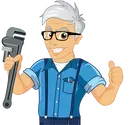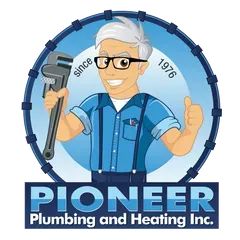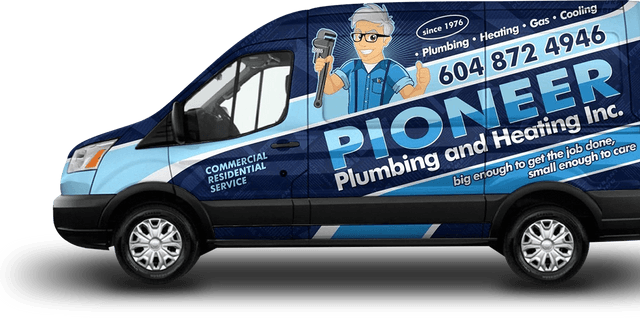Emergency Sump Pump Repair
We provide sump pump repair services for all makes and models. Our 24 hour emergency sump pump service can help protect your basement from potential flooding and water damage. Please keep in mind if there have been power outages it is possible your electrical panel has thrown a switch. Check that before calling.
If you are thinking about local sump pump repair cost or sump pump installation cost, please review our rates page. It will help you roughly calculate how much you'll pay for sump pump troubleshooting or professional sump pump installation cost.
What Do Sumps Pump Do?
Sump pumps move excess water away from your home’s foundation, protecting your basement from unwanted water ingress to keep the soil surrounding your home stable. Activated by rising water, sump pumps have a deep-cycle marine battery in conjunction with a trickle-charger. In many cases a 12-volt back-up battery is there for extra protection. It is recommended to have a backup power source for times when the power grid is down.
Basements in most homes are below ground. When your yard is dry on top, the soil under and around your basement can be moist or even quite wet. In many homes a basement sump pump is working steadily in the sump pit, maintaining acceptable water levels in your basement.
Tucked away in a corner, the unit is below floor level in a hole known as a sump pit, in which you can expect to see water, which is quite normal. Like a lot of home appliances like this, the life expectancy of one of these units is about ten years. A little longer if you've maintained it and purchased a good quality pump.
If you are wondering who to call for sump pump repair, you've found the company who will take care of you. We aren't satisfied until you are.
Repair or Replace
Sump pumps need regular maintained and should be inspected annually and more frequent in areas with a wet climate (BC’s Lower Mainland) or a high water table. Not having regular maintenance and servicing could invalidate your home insurance and force a sump pump replacement service sooner than should be.
Sump pump failures typically go unnoticed until a flooded basement explodes onto the scene, but by then you are facing expensive repairs. Maintenance is the best policy for any basement with a sump pump.
Some systems in older Richmond homes pump water into the city’s combined storm-and-sanitary sewers. With the ongoing changeover to separate storm water and sanitary sewers, homeowners are legally obliged to reroute their sump pump discharge away from sanitary sewers or face a fine.
Any units we replace are always the best sump pump from a reputable manufacturer. Warranties are included in any work of this nature.
Sump Pump Service & Maintenance
We can re-route older sump systems if needed, install a new pump and set up a sump pump home maintenance program to ensure safe operation.
With an annual plumbing inspection, we check to see that your homes plumbing components are in top working order. The laundry room, pump, toilets and showers, faucets, pipes and drains will either get the green light or repair recommendation if any other plumbing issue shows up.
How Does a Sump Pump Work?
A flooded basement is a homeowner’s nightmare. A sump pump protects your home from heavy rain and rising waters that leave behind enormous repair costs and structural damages. It's important to know which of the different types of sumps pumps best fits your needs. Below, we will guide you through how abasement pump works and how to choose the right one for your home.
Sump pumps move ground water from the sump pit in your basement out of your home. A sump is a naturally constructed pit, usually a hole carved below the main surface of your basement floor. This pit, known as a sump basin, holds the pump.
The pump is equipped with valves that sense escalating water level or pressure. When ground water gets too high, sump pumps automatically pump enough gallons of water per hour out of the basement and away from your property using a discharge pipe. This line, called an effluent, connects your type of sump pump to a designated drainage area.
Types of Sump Pumps
Submersible sump pumps:
Submersible pumps contain the pump and motor in one unit. They sit submerged and closed inside a basin in your basement. Because submersible pumps are completely submerged in the water basin, they are often quieter, save space in your basement, and clog less than a pedestal. However, due to the effects of water submersion, they may not last as long as other pumps, so submersible sump pump replacement should be figured into overall costs. This is still the best option for homes with major flooding concerns. Ask us about our submersible sump pump replacement service.
Pedestal sump pumps:
Unlike a submersible sump pump, a pedestal pump consists of a separate motor and pump. The motor sits on a pedestal above the basin, with a hose running to the basin where the pump is placed. The pump sends water through the hose and out to your designated drain area. Because the motor is not submerged, it often has a higher lifespan than other pumps and can be accessed easier for routine maintenance issues. However, it also means it can be louder and take up more space than the submersible pump. Ask us about pedestal sump pump installation.
Battery-operated backup:
A battery backup sump pump is a great way to provide some extra security from flood damage. A battery backup with a float switch allows your type of sump pump to operate even when there is a power failure during a storm when you need it the most. When the power goes out the pump does too so it's a good idea to have a backup power source. Ground water rises in the basin and the float switch is triggered sending your battery operation into action. Ask us about our backup sump pump installation service.
Water-powered backup:
A water-powered backup clears the water in your basin through increased water pressure. The advantage of a water-powered system is that there's no need to monitor the backup or replace any batteries. The use of additional water raises your water bill significantly and is a bit controversial. Some cities do not allow them to be installed.
When to Replace a Sump Pump
If your pump is making loud noises, running for an unusually long amount of time, cycling irregularly, or is older than ten years, it is very likely you are due for a replacement. We provide professional basement sump pump installation with a comprehensive work warranty.
Loud noises coming from the sump pump's pit indicate that there is a serious problem afoot with your pump. As the pump approaches the end of its lifecycle, the motor will start to make roaring sounds as it pumps the water away from your home.
All water pumps will make some degree of noise as they pump water out of the basement, but the noise levels should never reach you upstairs in your house. Rattling, clanging, and screaming motors all indicate that the motor is approaching failure, or that the pump was installed incorrectly to begin with. If the discharge lines running from the pump's pit are angled sharply, this will generate a great deal of noise. The water will slam into the tubing angles, sending banging noises throughout the basement. Consider wrapping the drainage pipes in insulation to dull the noise, or call a licensed plumber to reroute the discharge pipe in a more streamlined fashion.
Loud noise can also indicate a damaged impeller or a clogged pump. If the pump's impeller has become choked by debris like leaves, dirt, and sticks, the pump will screech and rattle as it attempts to suck water out of the basin. If the impeller becomes broken or otherwise damaged, it can make loud rattling noises when in use. When the pump is not in use, consider removing the pump and inspecting the components to make sure they have not become clogged or injured.
If the pump is constantly running, this indicates that your pump is either at the end of its lifespan or rapidly approaching it. A sump pump should never cycle continuously. It is entirely possible the pump is altogether the incorrect size. A pump that is too small for the volume of water it is tasked with displacing will perpetually struggle to keep up with the demands placed upon. This will exhaust the pump, overwork the motor, and lead to premature failure of the pump.
A pump that is constantly running could also be the result of a damaged or jammed float switch. The float switch is the apparatus that triggers the pump to turn on. Float switches are lightweight devices that will rest on the surface of the rising water. Once the water in the basin reaches a predetermined height, the switch will alert the pump to begin displacing the floodwaters. If this float switch becomes tangled in wires or pipes or jammed by debris, it will be signaling the pump that there are elevated water levels perpetually.
The float switch can also become jammed if the pump shifts within the basin and the float switch becomes pressed against the walls of the pit. A stuck float switch will keep the pump running constantly, forcing the pump to exert an unsustainable amount of effort. The strain placed on the motor by this will cause failure far before the designed lifespan of the pump. If you hear your pump running perpetually, it is wise to quickly identify the root of the issue before your pump wears out entirely.
A float valve positioned too low in the basin will also place extraneous work on the pump. If it only takes mere inches of water to trigger the pump's cycle, the pump will kick on and off constantly. This short-cycling of the pump places strain on the pump and its mechanical components. If your pump is taking too long to empty out your basin, then the pump probably does not have enough horsepower to perform its job. A pump that is unable to empty out the basin during a normal rainfall will quickly become overwhelmed in the event of a serious storm or flooding.
If you feel any of these issues are cause for concern, set up an appointment with one of our specialists today. We'll provide you with a professional plumber who knows his stuff.






